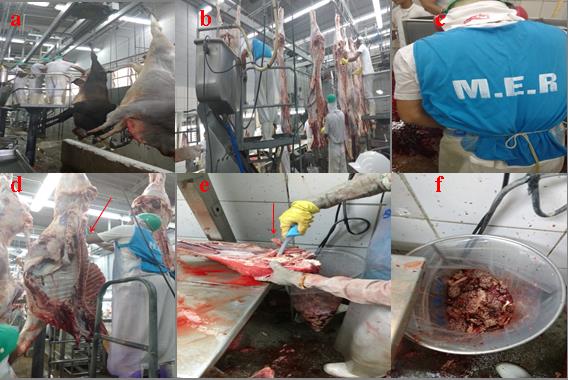Poultry litter intake by cattle: epidemiological characterization and sanitation of health hazards
DOI:
https://doi.org/10.21708/avb.2019.13.2.8385Resumo
The aim of the current study is to report a sanitary episode of poultry litter intake by cattle, based on the epidemiological characterization of health hazards and of sanitation measures implemented in the investigated property. The sanitary episode resulted from an anonymous report about the use of poultry litter as cattle food. The rural property located in São José de Ribamar County, Maranhão State, was inspected 72 hours after the complaint. Based on the initial inspection, 119 Nellore cattle were subjected to confinement system and fed on cattle food added with poultry litter. Given such discovery, cattle food samples were collected and sent to the National Agricultural Laboratory of Santa Catarina State. Laboratory results have shown the incidence of uncalcined bones, unhydrolyzed feathers and blood in the analyzed samples, which confirmed the inclusion of animal by-products in cattle’s diet. The current study is the first official report about poultry litter intake by cattle in Maranhão State, which was officially confirmed by laboratory results evidencing the presence of animal by-products in the analyzed samples. It is essential intensifying the active inspections carried out in ruminant-breeding farms in Maranhão State, as well as controlling poultry litter transit by documenting the purpose of its use.
Downloads

Downloads
Publicado
Edição
Seção
Licença
Autores que publicam na Acta Veterinaria Brasilica concordam com os seguintes termos: a) Autores mantém os direitos autorais e concedem à revista o direito de primeira publicação, com o trabalho simultaneamente licenciado sob a Licença Creative Commons Attribution que permite o compartilhamento do trabalho com reconhecimento da autoria e publicação inicial nesta revista. b) Autores têm autorização para assumir contratos adicionais separadamente, para distribuição não-exclusiva da versão do trabalho publicada nesta revista (ex.: publicar em repositório institucional ou como capítulo de livro), com reconhecimento de autoria e publicação inicial nesta revista. c) Autores têm permissão e são estimulados a publicar e distribuir seu trabalho online (ex.: em repositórios institucionais ou na sua página pessoal) a qualquer ponto antes ou durante o processo editorial, já que isso pode gerar alterações produtivas, bem como aumentar o impacto e a citação do trabalho publicado (Veja O Efeito do Acesso Livre).


 Esta obra está licenciada com uma Licença
Esta obra está licenciada com uma Licença 